Last month, I took myself on holiday with one aim - read as many books as possible. My wife and I tend to alternate our holidays - one relaxing break then one adventure break.
Our previous trip was a 3 week road-trip through Australia, so this time I opted for an all-inclusive break in the Canaries at an adults-only hotel. I spent a week lying in the sunshine, eReader in hand, pausing only for the occasional cocktail.
I thoroughly recommend this sort of holiday. If you have a "staycation", there will be all sorts of little jobs to distract you. Laundry, phone calls, making your own food. Having nothing to do, no commitments, is a superb way to read without distraction. I often find that if I read a book over several days, I get confused. I forget characters, or can't remember the conclusion to an academic argument. Reading all at once is such a joy.
(Aside: yes, I know I'm privileged. I have the resources to fly somewhere warm, a generous leave policy at work, and am happily child-free.)
Something I discovered about reading books in quick succession is that I need to alternate my reading. If I read two fiction books in a row, my mind treats them as a single novel. So I flip between fiction and non-fiction. I also swap fonts between books to help with the transition.
This year, I'm only reading books by women. Looking back over my previous reviews, I mostly read male authors. So this is an attempt to correct this imbalance.
(OK, I've cheated once this year by reading Terry Pratchett's Discworld Imaginarium - but that's a picture-book, so doesn't count. Right?)
If you'd like to see what's on my to-read pile (or want to buy me a book) my reading list is on Amazon.
Anyway, here are the eleven books what I read...
The Entrepreneurial State - Mariana Mazzucato
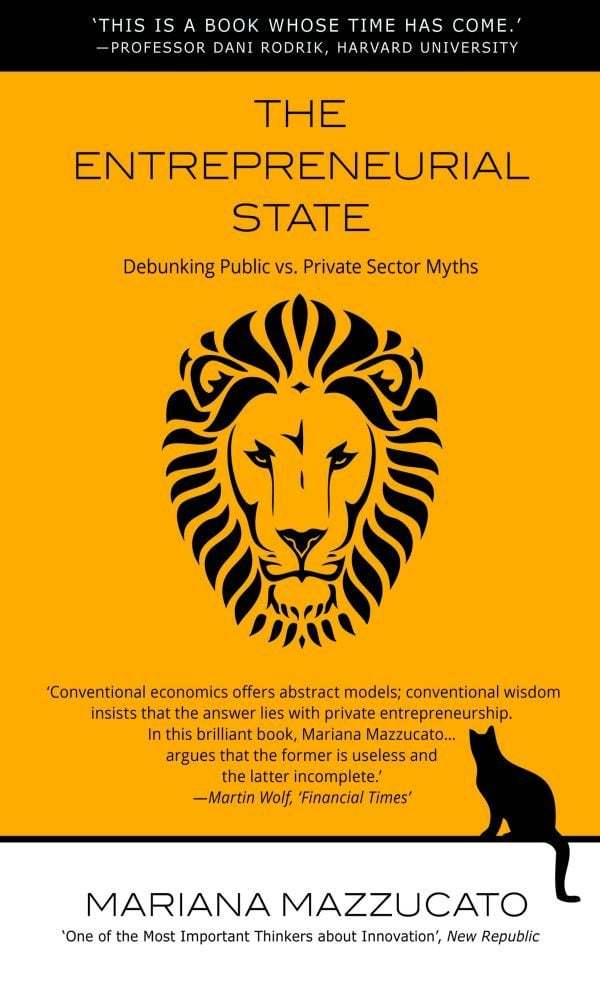
This book debunks the myth of the State as a large bureaucratic organization that can at best facilitate the creative innovation which happens in the dynamic private sector. It argues that in the history of modern capitalism the State has not only fixed market failures but also shaped and created markets, actively investing in new technologies and sectors that private investors only later find the courage to move into.
A profoundly important book. Your iPhone - and most other high tech stuff - is based off state-sponsored research. For every Venture Capitalist saying "the free market made this possible" there is an army of publicly funded developers. Sometimes, in the case of GPS, a literal army!
It makes a compelling case for the funding of basic and experimental research and development. We need long-term planning, rather than short-term profit chasing.
My only criticisms of this book are based on me not reading many academic books. I don't understand how a reference that just says "Smith (1904)" is helpful to anyone. It is also repetitive - I suspect because it is a collection of related essays, rather than a unified book. I also wonder whether it is normal for an author to continually cite their own work.
Either way, it clearly presents a well-researched argument and exhaustively demonstrates its veracity.
Just One Damned Thing After Another - Jodi Taylor
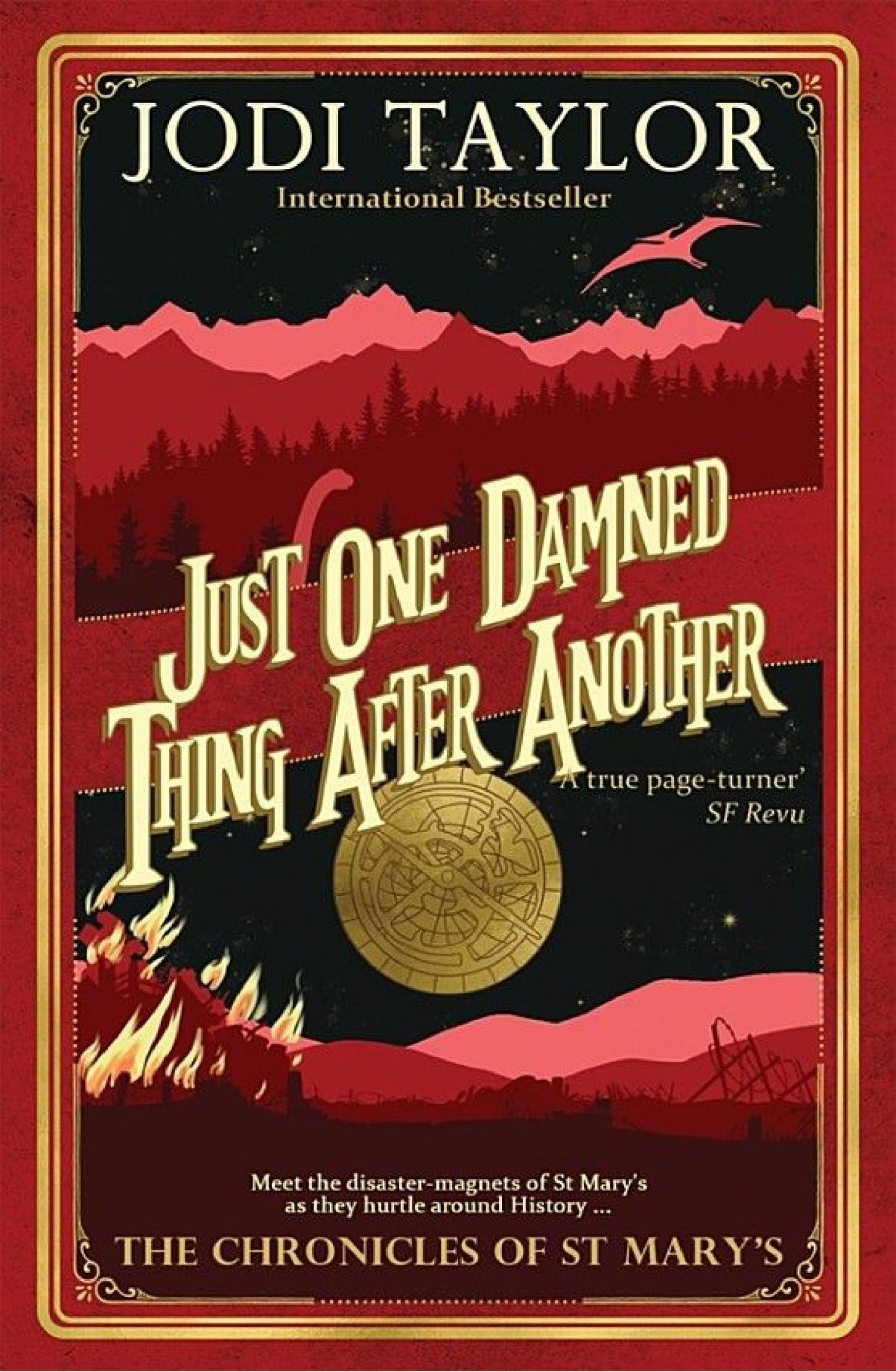
The first book in the bestselling Chronicles of St Mary's series which follows a group of tea-soaked disaster magnets as they hurtle their way around History.
This is stupid amounts of fun! A roaring adventure through time. Doesn't bother getting hung-up on paradoxes - or science - but goes straight for the heart of history. Historians!
Specifically, historians fightin', drinkin', and shaggin' their way through the space-time continuum.
There are several points where the book could have ended satisfactorily, with suitable cliff-hangers. But each subsequent chapter brought more fun. I'm not sure I have the energy to read all 9 novels in one sitting - but I'm looking forward to rejoining the gang on my next holiday.
The Age of Surveillance Capitalism - Shoshana Zuboff

The Age of Surveillance Capitalism is a deeply-reasoned examination of the threat of unprecedented power free from democratic oversight. As it explores this new capitalism's impact on society, politics, business, and technology, it exposes the struggles that will decide both the next chapter of capitalism and the meaning of information civilization. It shows how we can protect ourselves and our communities and ensure we are the masters of the digital rather than its slaves.
Possibly the worst book I've read all year. It would be twice as good if it were half as long. It would be a hundred times better if the author hadn't confused polysyllabic words with an effective argument.
The worst thing is - I think I probably agree with most of this book. But it is so turgid and (I hate to use this word) hysterical that I don't think it will produce meaningful change.
The author clearly sets out how surveillance has become the lifeblood for modern internet companies. I fully agree with her analysis. Although it is written in such a convoluted fashion that I doubt most people will make it through the first few chapters.
Next, it moves on to advertising. Again, I agree that targetting advertising is a nuisance. I don't think it is particularly evil - but I block it all anyway. There's no argument presented - we just have to take it on faith that targetting is bad.
I found myself skimming large chunks of chapters in an attempt to find a sentence which made sense. Here's a typical bit of academic-babble:
We may yet see the founding of a new synthesis for a third modernity in which a genuine inversion and its social compact are institutionalized as principles of a new rational digital capitalism aligned with a society of individuals and supported by democratic institutions.
I've read that several times and I'm still no closer to deciphering it. The whole book is like that. Purple-prose utterly lacking in simplicity.
Another section deals with population control. We're told that in the future, our cars will be tied into surveillance systems. If we drive dangerously, or miss a payment, they'll be disabled.
At which point, I found myself thinking "...good?" I mean... if you're a bad driver, what's wrong with putting up your insurance premiums? If you're lumped in to a high-premium demographic, why should you have to subsidise the prices of your riskier cohort? Perhaps you can explain the problem to me - because the author didn't.
The book mentions the story of the repossession agent who helped crowdfund car repayments for a delinquent couple. This was presented as a heart-warming tale - but I found it chilling. Rather than the impartial laws of mathematics, people have to be telegenic and sympathetic in order get out of debt. Somehow, that's presented as the preferable option.
Finally... Well, there is no finally. There's no list of tips for how users can protect themselves (download Firefox and use an adblocker would be my advice). It's just a pure emotional howl of rage. Perhaps that's cathartic for some, but it doesn't change the world.
This book is important. Far too important to be this badly written.
Sorcerer to the Crown - Zen Cho

Winner of the 2016 British Fantasy Society Award for Best Newcomer. Shortlisted for the 2016 British Fantasy Society Award for Best Novel. Shortlisted for the 2016 Locus First Novel Award. Sorcerer to the Crown is the first in Zen Cho's thrilling magical adventure series, the Sorcerer Royal Trilogy.
This was an absolute delight to read. Magic, racism, and sexism, wrapped together with international politics.
It is, basically, fan-fiction for the "Jonathan Strange & Mr Norrell" universe. With a dash of Neil Gaiman's Stardust. In courtly Olde Englande magicians preen themselves despite the fact that English Magic Is In Peril!
Yes, it is derivative, but it is so much fun that I'm prepared to forgive it. There are no big surprises - the baddies are obvious bad and the plucky young girl is rewarded for her vim and vigour. It's an entertaining universe to spend time in.
The Guilty Feminist - Deborah Frances-White
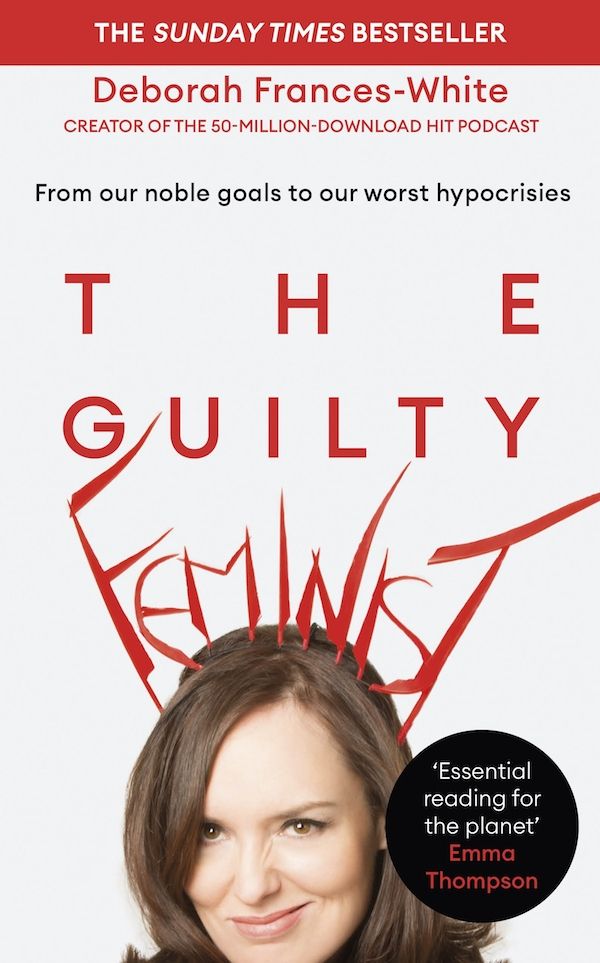
Why do we find it so hard to say 'No'? What does poker teach us about power structures? How can feminism be more inclusive? The Guilty Feminist will challenge you, reassure you and empower you to see the world differently.
A fantastic book. Even if you've listened religiously to The Guilty Feminist Podcast, or seen the author's solo shows, there's plenty of new material in here.
It's a powerful and inclusive piece of work. Even if you think you know everything there is to know about modern feminism, I guarantee you'll find something new - and breathtaking - in there.
It'll get you angry, fired-up, and hopeful for the future.
I stopped highlighting passages halfway through, because it feels like every other sentence could be pasted on a t-shirt. This is the one which resonated the most for me:
If you’ve been raised with running water and had it every day of your life, you will feel entitled to it. Hot and cold water from a tap doesn’t occur in nature, so this is a privilege you’ve always known that’s come to feel like a right. If your water got turned off today, you’d phone the council. If it wasn’t back on in forty-eight hours you’d be tweeting, and if it wasn’t restored in a week you’d be writing angry letters. At no point would you think, ‘Well, I guess we don’t have running water any more. Where’s the closest river? I guess I’ll have to walk down there with a jug on my head.’ Although many people around the world live like that every day, it would almost certainly never be acceptable to you because running water is your standard, your normal, your expectation. Entitlement is the residue of privilege.
Alone Together - Sherry Turkle
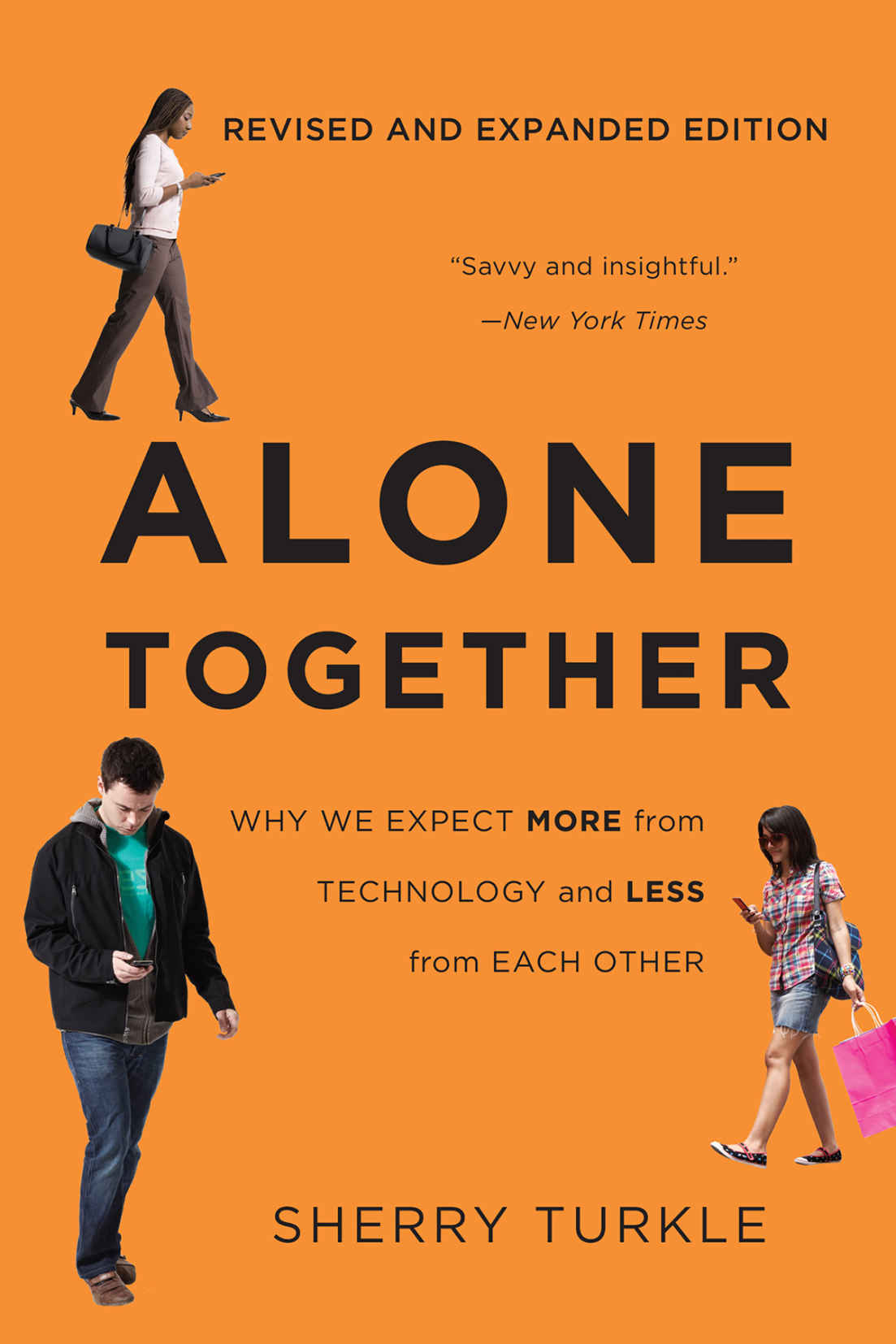
Technology has become the architect of our intimacies. Online, we fall prey to the illusion of companionship, gathering thousands of Twitter and Facebook friends, and confusing tweets and wall posts with authentic communication. But this relentless connection leads to a deep solitude. MIT professor Sherry Turkle argues that as technology ramps up, our emotional lives ramp down.
A profound and moving book. It neatly describes how online socialising tickles some parts of our needy brains, without actually fulfilling them. At times, this book is touchingly naive - we're no closer to having the social robots that it predicted - but the sentiment is completely correct. We all want to be loved and will anthropomorphise anything we can.
The strength comes from the narrative encounters with the book's subjects. Each statistic is neatly paired with an emotional anecdote.
It will absolutely change the relationship you have with the little dopamine-spurting icons you see in your social media feed.
Sapience - Alexis Lantgen
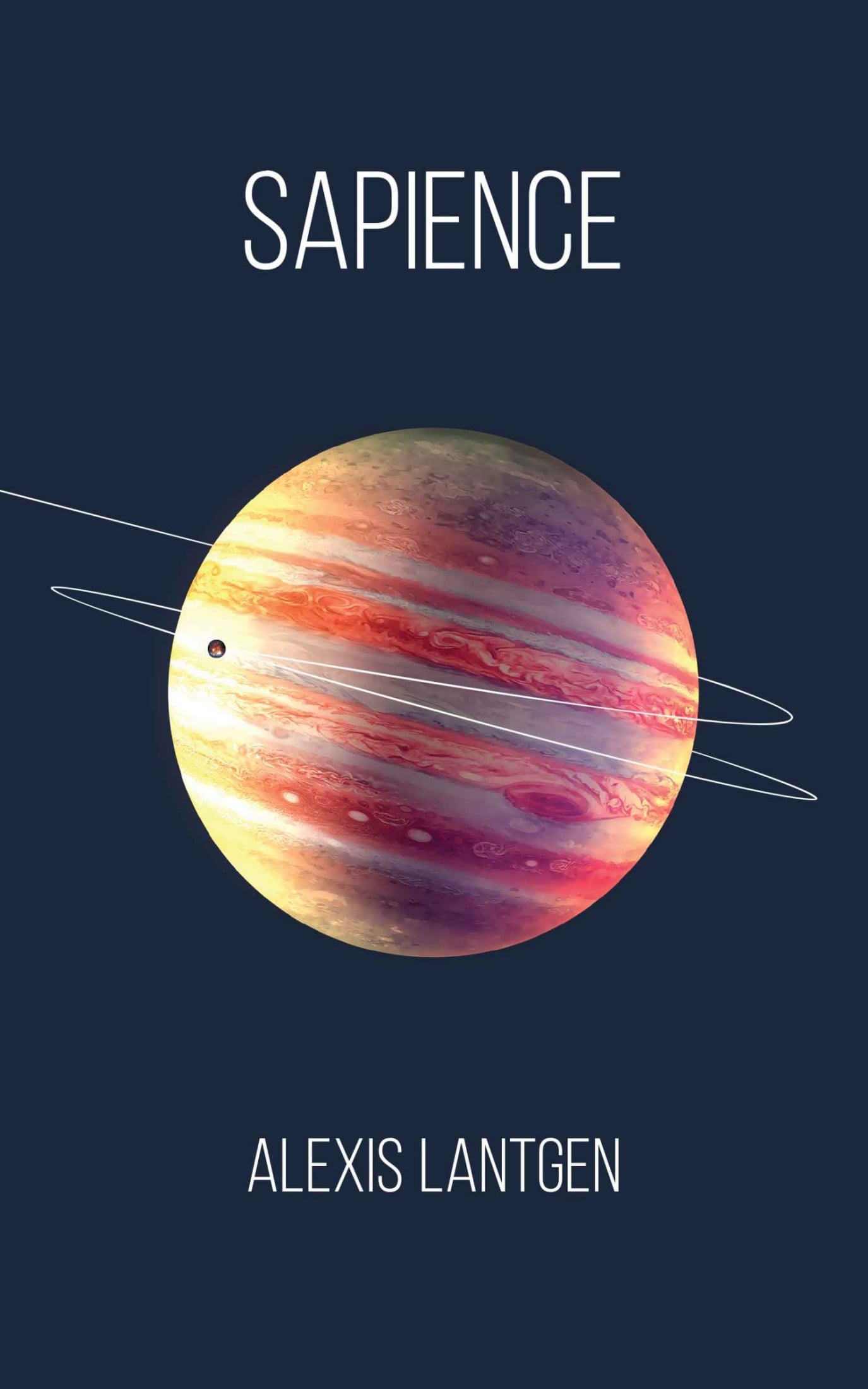
What kind of life will we find in the depths of Europa's Oceans? What kind of life will we allow an AI with human level intelligence? The ten stories in Sapience: A Collection of Science Fiction Short Stories explore these questions and many more.
A delightful - and weird - collection of sci-fi shorts. All loosely tied together by the looming moon of Jupiter.
A couple were a little too grim and visceral for my liking. But each was compelling and perfectly composed.
The Pursuit of William Abbey - Claire North

A young and naive English doctor, William Abbey, witnesses the lynching of a local boy by the white colonists. As the child dies, his mother curses William. William begins to understand what the curse means when the shadow of the dead boy starts following him across the world. It never stops, never rests. It can cross oceans and mountains. And if it catches him, the person he loves most in the world will die.
I love Claire North's writing. This latest novel follows her regular template - a person with uncanny abilities has to survive a world which wants to abuse their talents.
It's a long and winding tale, almost a travelogue. It gradual ratchets up the tension and horror building to a satisfying conclusion.
There's also a lovely bit of fan service which vzcyvrf gung zbfg bs ure obbxf gnxr cynpr va gur fnzr havirefr!
Perhaps my only criticism is that it's a little long. I guess it just represents excellent value for money.
Well worth reading her previous novels. "The First Fifteen Lives of Harry August" is sublime. "The Sudden Appearance of Hope" is excellent. "The End of The Day" is magical. And 84k is pretty good too!
A Short History of Myth - Karen Armstrong

Karen Armstrong's concise yet compelling investigation into the history of myth takes us from the Palaeolithic period and the mythology of the hunters right up to the 'Great Western Transformation' of the last 500 years. She shows us that the history of myth is the history of humanity, and our stories and beliefs, our curiosity and attempts to understand the world, link us to our ancestors and each other.
A crisp and meticulously referenced work. But, as the title suggests, all-too-brief. It tracks the development of Palaeolithic myths to their modern counterparts. But it feels like the reader is already expected to know the details of each one.
It left me hungry for more - which I guess is the point. But at times I felt I was reading the Wikipedia excerpts of major works.
Something Beginning With - Sarah Salway

Written in brief entries from ‘Ambition’ to ‘Zzzzz’ Salway's confident debut novel chronicles the existential ups and downs of British 20-something Verity Bell. The alphabetically arranged mini-chapters make for an inventive and episodic narrative, as Verity muses on her career .
For some reason I purchased this in 2013 and left it 7 years before reading. I wish I'd left it 70.
I don't usually read sappy romantic / emotionally manipulative novels. And this is why. It's a sad and pathetic story about a set of sad and pathetic characters. I felt nothing but contempt for them and their predicaments.
I suppose, if you want to feel smugly superior to someone making worse life-choices than you, this book would do the trick.
The Memory Illusion - Julia Shaw

In The Memory Illusion, forensic psychologist and memory expert Dr Julia Shaw draws on the latest research to show why our memories so often play tricks on us - and how, if we understand their fallibility, we can actually improve their accuracy. The result is an exploration of our minds that both fascinating and unnerving, and that will make you question how much you can ever truly know about yourself.
Possibly the most disturbing book I've read. Your mind is nothing. Your memories are mailable. Everything you think you remember can be trivially rewritten. Oh, and Dr Shaw can scramble your brain with nothing more than her superpowers words.
I've had a hard time reading academic books recently. So I was most encouraged by the intro:
I live by this philosophy of explanatory parsimony myself, though of course it does sometimes come at the cost of explanatory adequacy. In other words, when I explain concepts by using analogies, stories or simplifications, I always risk losing some of the nuances of the inherently complex issues under discussion.
The book is beautifully laid out, and has a light tone which pushes through some of the drier aspects of neuroscience. I loved the way it ran through the history of memory - right up to cutting edge research.
I completely recommend this book. And I have fond memories of reading it. I think.
One thought on “Weeknotes: Reading Week”
Thanks for sharing this, this is what I need - a reading holiday! 😃 (Alone together sounds interesting- will add to my reading list)
| Reply to original comment on twitter.com
What links here from around this blog?